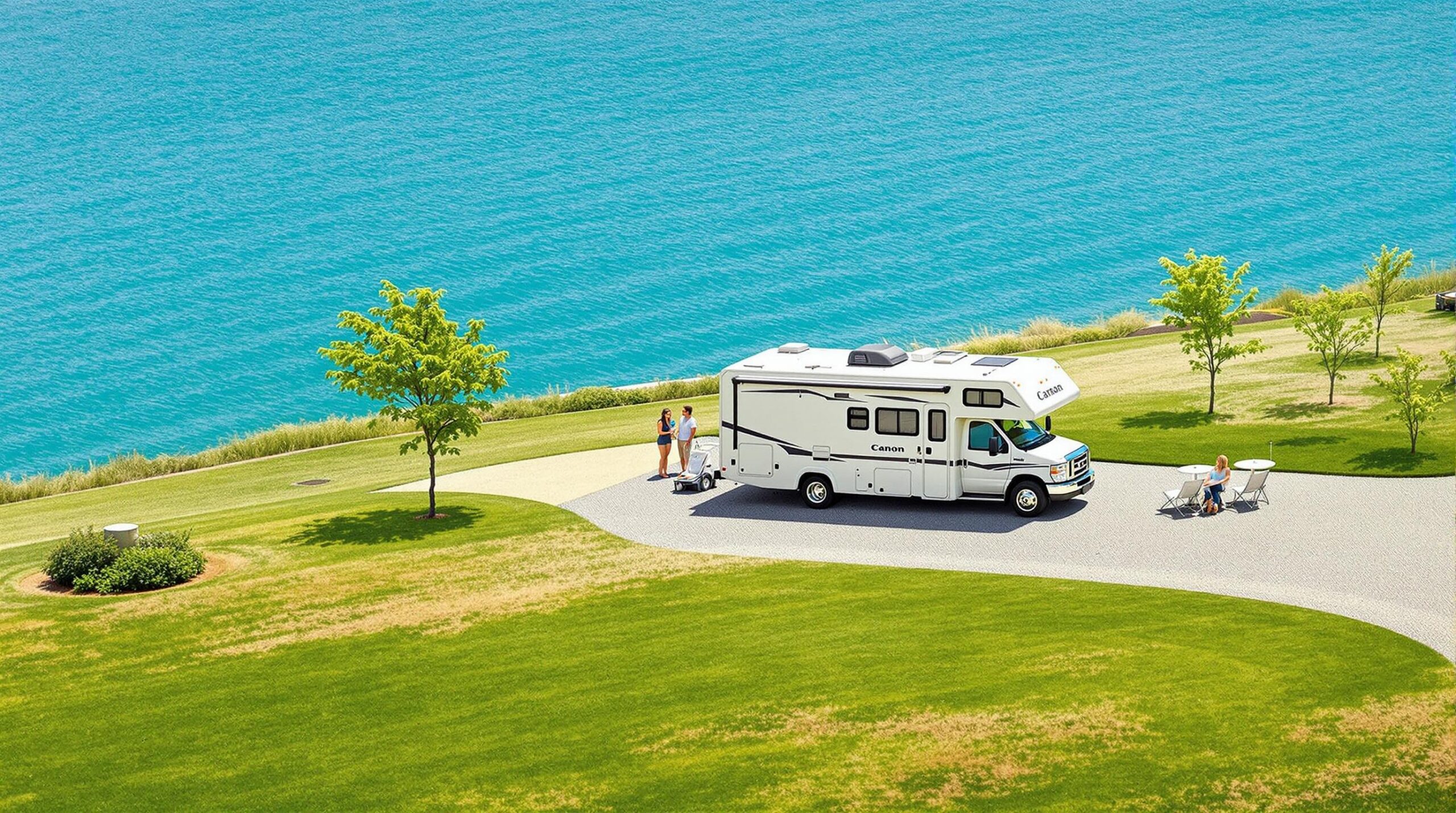Americans are scaling back summer travel plans in 2025 amid economic uncertainty, growing concerns over air travel, and rising interest in outdoor experiences, according to a new survey released by Harvest Hosts, a membership network offering access to over 9,000 RV camping locations.
The findings reveal a shift toward domestic destinations, road trips, and budget-conscious adventures.
The survey, conducted by Harvest Hosts, highlights a growing preference for U.S.-based vacations as geopolitical tensions and potential tariffs lead to concerns about international travel.
Nearly 59% of Americans reported being uneasy about perceptions of Americans abroad, with 74% of those who changed flight plans in the past six months citing this as a contributing factor.
Domestic travel is on the rise, especially among younger generations. The data show 64% of Gen Z and 63% of Millennials are planning trips within the U.S., and of the 44% who expect to visit national parks this summer, more than half are considering RV rentals.
Additionally, 71% of respondents said supporting local businesses is a key part of their summer travel plans.
According to a press release, Joel Holland, CEO of Harvest Hosts, noted similarities between current travel patterns and those seen during the pandemic.
“Now, as the travel industry braces for another chaotic season and potential economic downturn, we’re seeing COVID-level upticks in demand for road travel and outdoor excursions,” Holland said.
Flight delays and safety concerns are driving many to reconsider flying. Thirty-two % of Americans said delays and cancellations are their top travel frustration, with younger travelers particularly affected—51% of Gen Z and 45% of Millennials said they’ve already changed or reconsidered air travel plans.
Instead, 52% of respondents said they plan to take several short, local trips rather than a single extended vacation.
Economic conditions also continue to influence vacation decisions. Sixty-four percent of Americans are adjusting their plans due to financial concerns, with 27% choosing lower-cost trips, 14% traveling less, and 12% opting not to travel at all.
Millennials are the most affected, with 72% altering travel plans compared to just 48% of Boomers.
Outdoor activities remain popular across generations. The survey shows 60% of respondents favoring nature over city destinations, with Millennials booking nature-focused vacations at a rate of 74%.
Hiking was the top choice across age groups, followed by fishing and horseback riding, particularly among Millennials and Gen Z.
Camping and RV travel continue to gain traction, with increased interest reported by 34% and 33% of Americans, respectively.
Among Millennials and Gen Z, nearly half are considering camping (47%) and RVing (43%). The affordability, flexibility, and family-friendliness of RV travel are key drivers, especially for Millennials traveling with children or pets.
Despite previous trends suggesting pets would play a central role in vacation planning, many travelers now prefer to leave both pets and children behind.
Forty-four percent said they are seeking child-free or adult-only experiences, while 46% prefer not to bring children under 16 or pets at all. Among Boomers, this figure rises to 74


